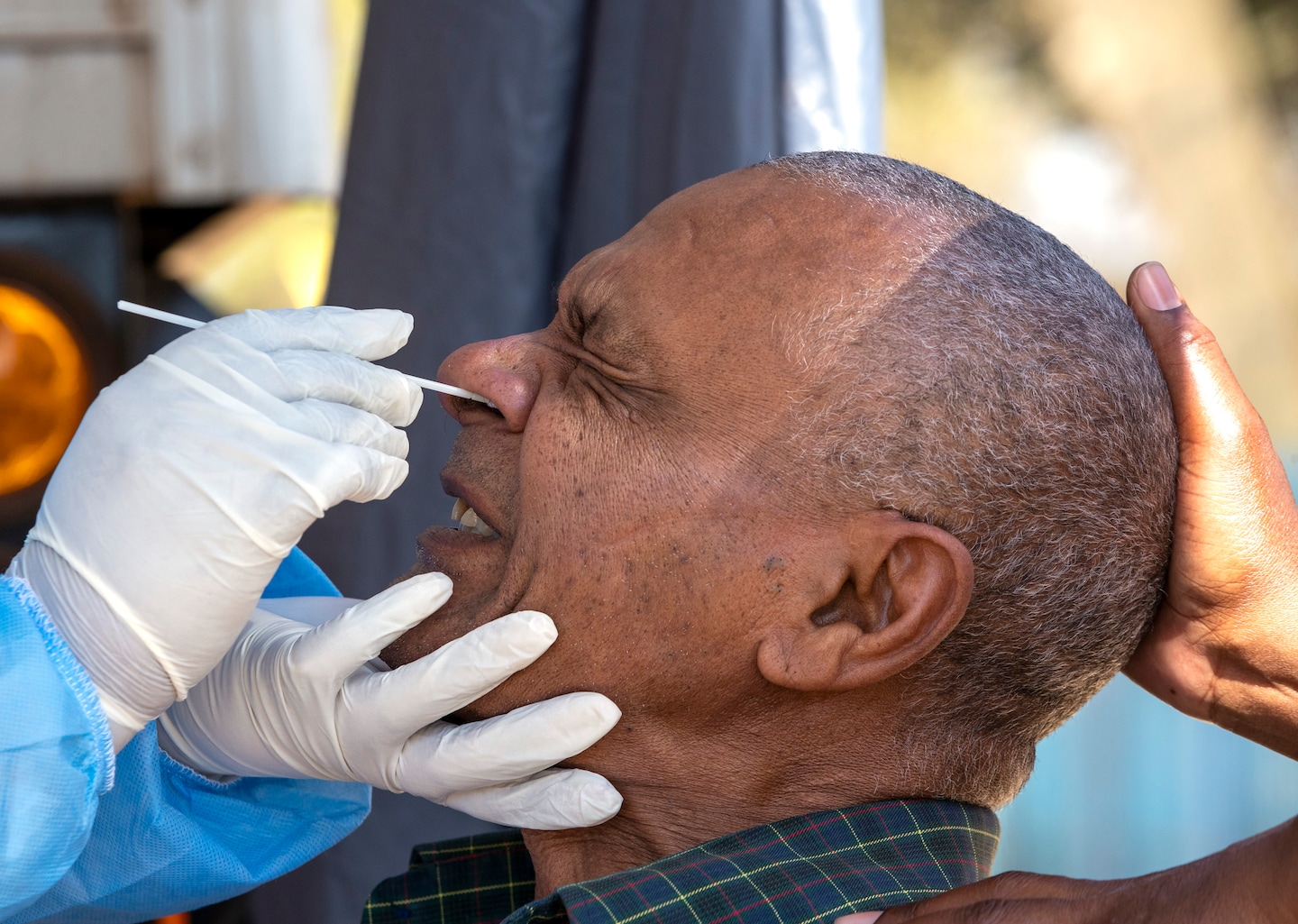Covid-19 threatens to overwhelm the developing world

South Africa provides an example. After some initial success in limiting the spread of the disease (thanks in part to widespread testing), that country now has more than 500,000 confirmed cases — the world’s fifth-highest count. And other African nations have begun experiencing an acceleration of new infections.
This is disastrous for a number of reasons. Across Africa, health systems are already fragile. Covid-19 is like a battering ram against a paper wall. In crowded slums, the exhortation to socially distance is a cruel joke. And most African countries are already dealing with an assortment of deadly infectious diseases that are infinitely complicated by the addition of a new one.
The worst damage is not coming from covid-19 directly but from its knock-on effects. Given the level of fear and stigma, many people are reluctant to seek health services for any disease. Health providers lack the protective equipment to confidently engage with patients. Hospitals are in emergency mode. Factory capacity to produce tests for other diseases has been diverted to covid-19. Laboratory staffs are being reassigned.
On HIV, there have been supply chain disruptions for anti-retroviral therapies, and many providers report being stressed or overwhelmed. On malaria — with many places in Africa reaching peak season — the work of net distribution and insecticide spraying has been compromised. On tuberculosis, covid-19 has undermined diagnosis, treatment and prevention efforts. According to a recent worldwide survey, about three-quarters of HIV, TB and malaria programs are facing disruptions.
The effect of all this is hard to disaggregate. From May 6 to July 14, South Africa reported 17,000 “excess” deaths — deaths compared with the same period in recent years. These included deaths from covid-19, but also those resulting from the diversion of resources away from other treatable or preventable diseases.
This is just a foretaste. In 2018, the combined deaths from HIV, tuberculosis and malaria were 2.4 million worldwide. This number may seem high, but it was actually a record low. Recent progress against these diseases has been dramatic. But analyses by the World Health Organization, UNAIDS and the Stop TB Partnership suggest that the combined annual death toll of the three diseases could nearly double in the chaos caused by covid-19, unless something is done.
The U.S. interest in preventing covid-19 from ravaging the developing world is undeniable. You can’t effectively fight a pandemic at home when it rages abroad.
This crisis raises ethical issues as well. It is the direct responsibility of elected officials to serve their constituents and fellow Americans. But the conduct of the U.S. government is marvelously complicated by a founding creed that asserts universal human rights and dignity. This commitment is required from anyone who takes the Declaration of Independence seriously. It is also mandated by any religious tradition that affirms: “To whom much is given, much is required.”
These moral responsibilities are not serial; they are concurrent. And this requires a balance between domestic and global duties. The welfare of Americans is the pillar of fire our political representatives are bound to follow. But there is also the still, small voice of American ideals. It deserves a hearing.
It is not yet receiving it. So far, Congress has dedicated about 0.1 percent of all covid-19 emergency supplemental money to our global response. The $4.4 billion in the Senate version of the new supplemental funding bill does not even rise to the level of pitiful. A group of senators is proposing four times that amount, which is closer to the real need (as estimated by U.S. experts working on the ground). These resources would support direct efforts against covid-19, but also help mitigate the effects of the pandemic on other health initiatives.
A number of senators and representatives from both parties have supported programs over the years such as PEPFAR (the U.S. President’s Emergency Plan for AIDS Relief), the Global Fund, Gavi and the President’s Malaria Initiative. This shared mission of global rescue represents some of the last remaining moral common ground in our nation’s legislative life. Tens of millions of needless deaths have been prevented.
All of those gains are now at stake. An easy act of negligence could undo the work of more than a decade. If Americans care at all about these moral achievements, they need to make it known.
Read more:






